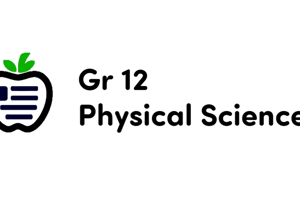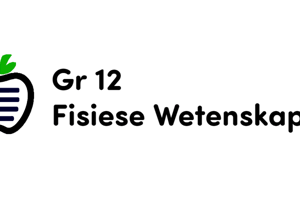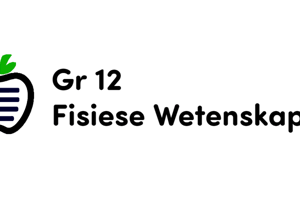Podcast
Questions and Answers
What is the branch of chemistry that deals with carbon compounds and their derivatives?
What is the branch of chemistry that deals with carbon compounds and their derivatives?
- Physical chemistry
- Organic chemistry (correct)
- Inorganic chemistry
- Analytical chemistry
Which system is widely used for naming organic compounds?
Which system is widely used for naming organic compounds?
- ACS system
- ISO system
- IUPAP system
- IUPAC system (correct)
How are structural formulas different from condensed structural formulas?
How are structural formulas different from condensed structural formulas?
- Structural formulas are simpler representations.
- Condensed structural formulas are drawn to show the carbon framework of the molecule.
- Condensed structural formulas show the exact positions of all the atoms in a molecule.
- Structural formulas show only the bonding patterns and functional groups. (correct)
What do condensed structural formulas represent?
What do condensed structural formulas represent?
Which method provides simplified representations showing only the carbon framework of the molecule?
Which method provides simplified representations showing only the carbon framework of the molecule?
What is the primary characteristic of organic compounds?
What is the primary characteristic of organic compounds?
Which functional group contains a hydroxyl (-OH) group and is polar?
Which functional group contains a hydroxyl (-OH) group and is polar?
What type of reaction involves the addition of a molecule to a carbon-carbon double bond?
What type of reaction involves the addition of a molecule to a carbon-carbon double bond?
Which organic compound is nonpolar and insoluble in water but soluble in organic solvents?
Which organic compound is nonpolar and insoluble in water but soluble in organic solvents?
What is the process of breaking down a target molecule into simpler starting materials called?
What is the process of breaking down a target molecule into simpler starting materials called?
Which functional group contains a carbonyl group (C=O) and is polar?
Which functional group contains a carbonyl group (C=O) and is polar?
What type of reaction involves the replacement of a functional group with another functional group?
What type of reaction involves the replacement of a functional group with another functional group?
Which type of organic reaction involves the removal of a molecule from a carbon-carbon double bond?
Which type of organic reaction involves the removal of a molecule from a carbon-carbon double bond?
What is the key chemical group in organic compounds that determines their properties and reactivity?
What is the key chemical group in organic compounds that determines their properties and reactivity?
Flashcards are hidden until you start studying
Study Notes
Organic Chemistry: Exploring the World of Carbon Compounds
Organic chemistry is the branch of chemistry that deals with carbon compounds and their derivatives. It is a vast and complex field, encompassing topics such as the naming and structure of organic compounds, functional groups and their properties, organic reactions and mechanisms, and organic synthesis and retrosynthesis.
Naming and Structure of Organic Compounds
Organic compounds are characterized by the presence of carbon atoms in their molecular structure. The naming of these compounds follows a specific set of rules and conventions. For example, the IUPAC (International Union of Pure and Applied Chemistry) system is widely used for naming organic compounds, which involves using a systematic method based on the structure of the compound.
The structure of organic compounds can be represented using various methods, such as:
- Structural formulas: These are drawn to show the exact positions of all the atoms in a molecule.
- Condensed structural formulas: These are simpler representations that show only the bonding patterns and the functional groups.
- Skeletal structures: These are simplified representations that show only the carbon framework of the molecule.
Functional Groups and Their Properties
Functional groups are the key chemical groups in organic compounds that determine their properties and reactivity. They are responsible for the characteristic chemical reactions of organic compounds and can be classified based on their structure and reactivity. Some common functional groups include:
- Alkanes: Alkanes are hydrocarbons with only single bonds between carbon atoms. They are nonpolar and insoluble in water but soluble in organic solvents.
- Alkenes: Alkenes contain a carbon-carbon double bond and are more polar than alkanes. They are less stable than alkanes and can undergo various reactions.
- Alcohols: Alcohols contain a hydroxyl (-OH) group and are polar. They are soluble in water and can participate in various reactions.
- Aldehydes and Ketones: Aldehydes and ketones contain a carbonyl group (C=O) and are polar. They can undergo various reactions, including oxidation and reduction.
Organic Reactions and Mechanisms
Organic reactions are chemical reactions involving organic compounds. These reactions can be classified based on the type of reaction and the functional groups involved. Some common organic reactions include:
- Addition reactions: These involve the addition of a molecule to a carbon-carbon double bond.
- Substitution reactions: These involve the replacement of a functional group with another functional group.
- Elimination reactions: These involve the removal of a molecule from a carbon-carbon double bond, resulting in the formation of a double bond.
The mechanisms of organic reactions describe the series of steps that occur during a chemical reaction. These mechanisms involve the breaking and formation of chemical bonds and the movement of electrons. Understanding the mechanisms of organic reactions is essential for predicting the products of a given reaction and for designing new synthetic routes.
Organic Synthesis and Retrosynthesis
Organic synthesis is the process of designing and creating new organic molecules from simpler starting materials. It is a complex and sophisticated field that requires a deep understanding of organic chemistry. Retrosynthesis is the process of breaking down a target molecule into simpler starting materials, which is the reverse of the synthesis process. Both organic synthesis and retrosynthesis are essential for the development of new drugs, materials, and other organic compounds.
In summary, organic chemistry is a fascinating and complex field that encompasses the study of organic compounds, their properties, reactions, and synthesis. By understanding the concepts and principles of organic chemistry, we can gain a deeper appreciation for the world around us and the chemical processes that govern it.
Studying That Suits You
Use AI to generate personalized quizzes and flashcards to suit your learning preferences.




